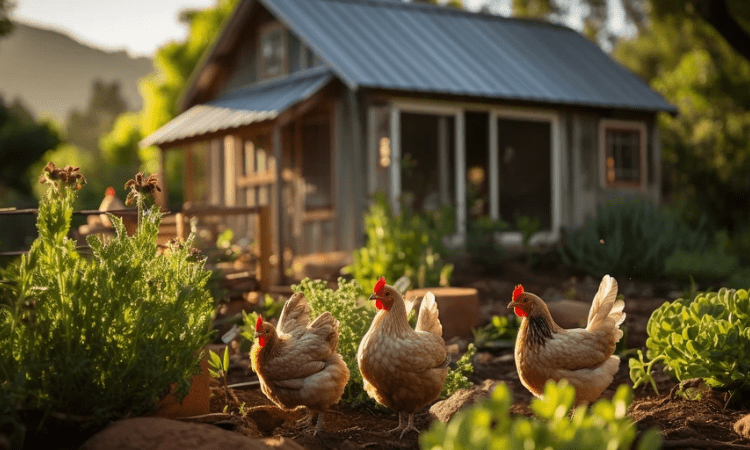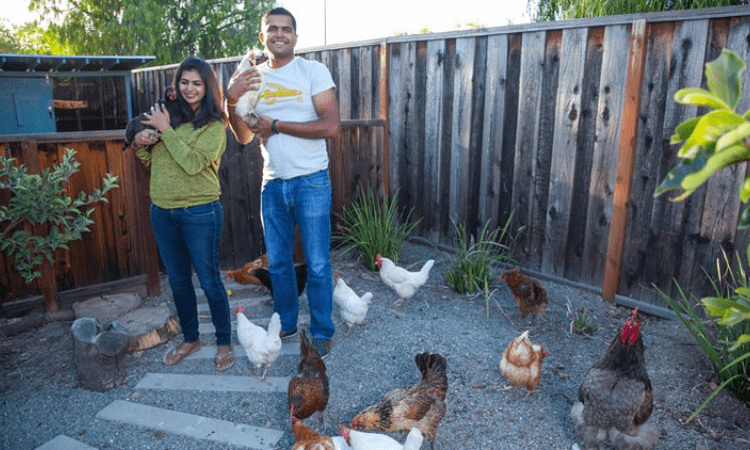As someone who has raised chickens in my backyard for over 7 years, I’ve learned a lot about what it takes to successfully and responsibly keep these wonderful creatures. Chickens can make great pets and provide fresh eggs, but they do require proper care and housing. This article shares my top tips for raising happy, healthy backyard chickens based on my extensive personal experience.
Choose the Right Chicken Breed
With over 200 chicken breeds to choose from, it’s important to select ones that are well-suited to backyard life. As a cold-hardy breed that excels in confinement, I highly recommend Plymouth Rocks. Their calm temperament makes them great for families while their excellent egg production provides a steady supply for the kitchen.
Orpingtons and Australorps are two other good dual-purpose bird picks. Steer clear of flighty breeds like Leghorns that are prone to escape attempts. Backyard Chickens offers comprehensive guides on different breeds and their suitability for backyard settings.
Provide the Proper Housing

One of the keys to successfully raising backyard chickens is giving them a safe, secure shelter. It should protect them from predators, storms, and extreme weather while providing adequate ventilation, roosting spots, and nest boxes. I house my small flock in a custom coop I built myself with both covered and fenced areas for weather flexibility.
Commercial coops are fine too if properly sized. Always allow at least three square feet per bird inside. The Chicken Chick provides detailed advice on building and maintaining chicken coops.
Let Them Free Range
Chickens evolved to spend their days scratching and pecking while roaming freely. Allowing backyard chickens to free range provides mental stimulation and encourages natural behaviors. Just be sure their area is fenced to contain them and has shelter options for quick cover.
I let my flock out once the dew dries until dusk, herding them back to their coop for the night. It keeps them healthy and happy. University of Kentucky’s Poultry Extension provides guidelines on free-ranging and its benefits.
Provide Proper Nutrition
Like all animals, chickens need balanced, nutrition-rich diets to thrive. I give my flock a quality complete feed made for backyard flocks to ensure they get all required nutrients. They always have access to the feed in their coop. Oyster shell supplements give an extra calcium boost for strong eggshells.
Treats like vegetable scraps and fruit are okay but compose a small part of their total diet. Always provide fresh, clean water. Poultry Hub provides comprehensive information on chicken nutrition.
Collect Eggs Frequently
Learning how to properly collect eggs is an important skill for any backyard chicken keeper. I gather eggs from nest boxes at least twice daily, storing them pointy side down on egg cartons in the fridge. Daily collection reduces the chances of cracked eggs and encourages hens to keep laying.
Once you get an egg routine going, those daily baskets will add up quickly! Eggs and Issues offers tips on egg collection and storage.
Keep Predators Out
Backyard chickens face threats from predators like dogs, coyotes, and hawks. A well-designed coop and enclosure go a long way in protection. I also have an outdoor security camera to monitor my run and make sure my flock looks safe. Be diligent about doing evening head counts when chickens roost.
If allowing free range time, stay outside to supervise. Predator attacks happen fast, so vigilance is key. The Livestock Conservancy provides strategies for predator control in poultry.
Learn About Molting
All backyard chicken owners eventually observe the natural process of molting. Usually yearly, chickens systematically lose old feathers and grow new ones. Egg production and feed intake normally decrease during this time as a chicken’s energy goes toward feather regrowth.
My birds always molt in late fall. Be patient with them as their bodies focus on new plumage. In a few weeks, they’ll return to normal laying and appetite routines. Poultry Care explains the molting process and what to expect.
Establish Proper Lighting

Just like many other animals, a chicken’s egg production is directly linked to daylight exposure. Chickens require roughly 14 hours of light per day to maintain consistent laying cycles. I use an automatic coop light set to turn on and off over my flock’s run to ensure they get enough light stimulus.
Even through short winter days, hens need proper lighting to avoid decreased egg production. Poultry Keeper provides advice on managing lighting for optimal egg production.
Learn to Identify Illness
Backyard chickens can unfortunately get sick just like any other animal. Know the signs of common health issues like parasites, respiratory illness, and egg binding. Simple things like decreased energy, appetite changes, and abnormal eggs can all signal chicken health troubles.
Isolate and observe sick birds while contacting a poultry vet if symptoms advance. A basic chicken first aid kit comes in handy for minor issues. Quick illness identification and treatment help ensure the best outcomes. The Chicken Vet offers resources on chicken health and common illnesses.
Follow Local Chicken-Keeping Laws
Urban and suburban chicken-keeping regulations differ greatly between regions. Some cities freely allow backyard coops while others ban them completely. Before getting chickens, understand the laws and permitting procedures in your area. I successfully got approval to keep my small flock through my town’s formal registration process.
Being a responsible chicken owner and neighbor is key to avoiding potential conflicts down the road. American Poultry Association provides information on regulations and best practices.
Commit to Ongoing Care
While chickens are great backyard pets, they are still livestock with ongoing care needs. Daily chores, seasonal coop maintenance, and being available to handle issues are all part of having chickens. Going out of town requires planning for their specialized care in your absence.
As with any pet commitment, educate yourself completely so you can provide chickens with the best life possible. I devote considerable time to my flock and they give me joy, companionship, and breakfast in return! Poultry Hub has resources on ongoing chicken care.
I hope this overview based on my real-world experience helps you gain the confidence to start your backyard chicken journey. With the right preparation and knowledge, raising a small flock can be incredibly rewarding for the whole family. Let me know if you have any other chicken-keeping questions!
Also read – Salmonella Outbreaks in Pet Birds-Prevention Tips for Bird Owners

Stina is the expert behind BirdFacts.net, dedicated to sharing her passion and knowledge about birds. With a degree in Environmental Science and over 6 years of birdwatching experience, she brings both expertise and enthusiasm to her writing. Stina’s work aims to inspire appreciation for birds and promote responsible birdwatching. Follow her bird-filled journey on Instagram.





